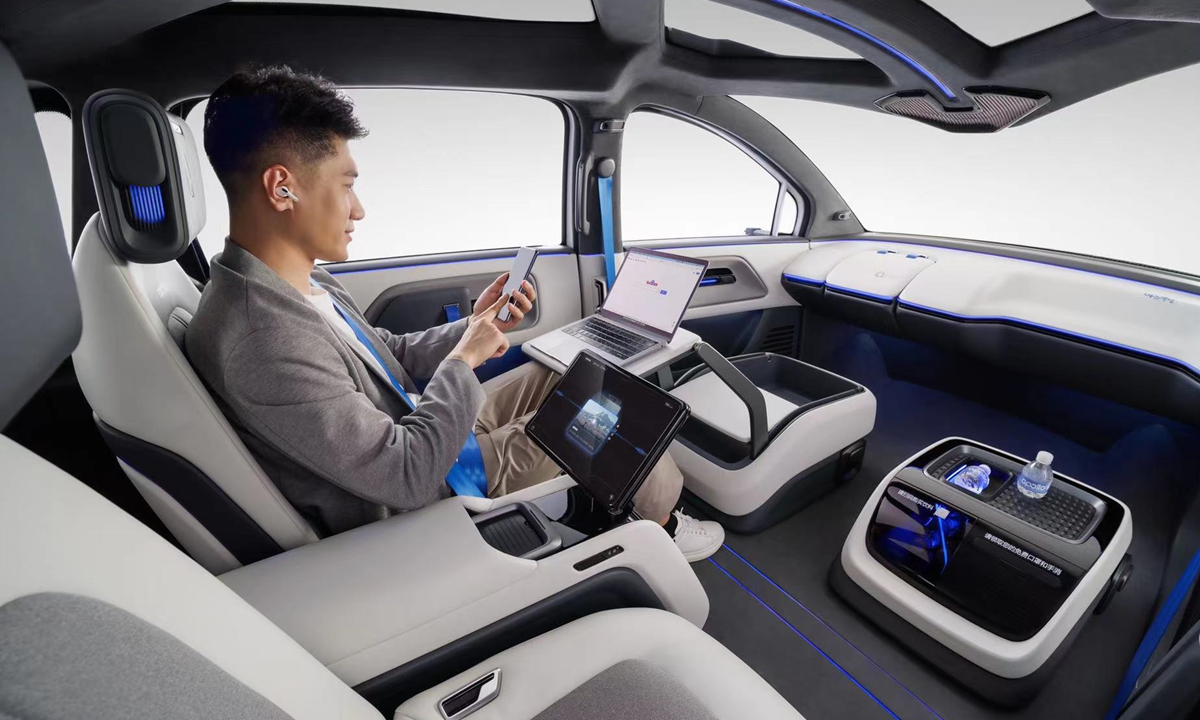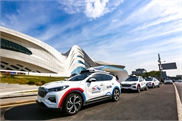
Photo: Courtesy of Baidu
Baidu unveiled its next-generation fully autonomous vehicle (AV) Apollo RT6, an all-electric, production-ready model with a detachable steering wheel on Thursday.
Designed for complex urban environments, Apollo RT6 will come into operation in China in 2023 on Apollo Go, Baidu's autonomous ride-hailing service. With unit cost of 250,000 yuan ($37,000), the arrival of Apollo RT6 will accelerate AV deployment.
"This massive cost reduction will enable us to deploy tens of thousands of AVs across China. We are moving toward a future where taking a robotaxi will be half the cost of taking a taxi today," said Robin Li, co-founder and CEO of Baidu, at Baidu World 2022, the company's flagship technology conference.
Li said Baidu has reduced the cost of self-driving cars to one-tenth of the industry's, which is equivalent to the price of an ordinary new energy vehicle.
"The cost of driverless cars has dropped so dramatically that we can deploy tens of thousands of these vehicles across the country," Li said.
Speaking at the conference, Li Zhenyu, senior corporate vice president of Baidu and general manager of the intelligent driving group, said the autonomous-driving capability of Apollo RT6 is equivalent to a skilled driver with 20 years of experience.
The creation of Apollo RT6 marks another milestone for Baidu to achieve its goal of providing safer, greener and more efficient mobility solutions. As the world's largest robotaxi service provider, Apollo Go has expanded to 10 cities in China since its launch in 2020, including all first-tier cities, according to Baidu.
Pony.ai, an autonomous-driving technology company, announced on Wednesday that it has received a permit to provide fare-charging driverless robotaxi services in Beijing. With this new permit, it is now able to charge fares in a 60 square kilometer area in Yizhuang, Beijing.
The company said in April that it had become the first autonomous-driving company to obtain a taxi license in China, signaling the Guangzhou government's formal implementation of such mobility services similar to traditional taxi and ride-hailing platforms.
China is on a fast track on developing self-driving vehicles, with effective government support. Shenzhen in July tailored a first-of-its-kind regulation for smart and connected vehicle management, which is scheduled to come into force on August 1, local media reported.
Beijing in November last year launched China's first pilot program for commercial autonomous-driving travel services, with many viewing the development as the end of the testing phase for autonomous driving and the beginning of broader market development.
The first group of enterprises that are permitted to undertake pilot commercial activity will be restricted to a 60 square kilometer area of the Beijing Economic and Technological Development Zone.
The development of the self-driving car industry is in its infancy, with few regions in the world having entered mass production, Mei Songlin, an auto industry analyst based in Shanghai, told the Global Times on Thursday, adding that the country's self-driving car industry is at about the same level of development as that of the US.
"Self-driving cars have more potential for development in China because consumers are so dependent on cars with a broader demand market. But legal roadblocks and consumer awareness are issues to be dealt with first," Mei noted.



